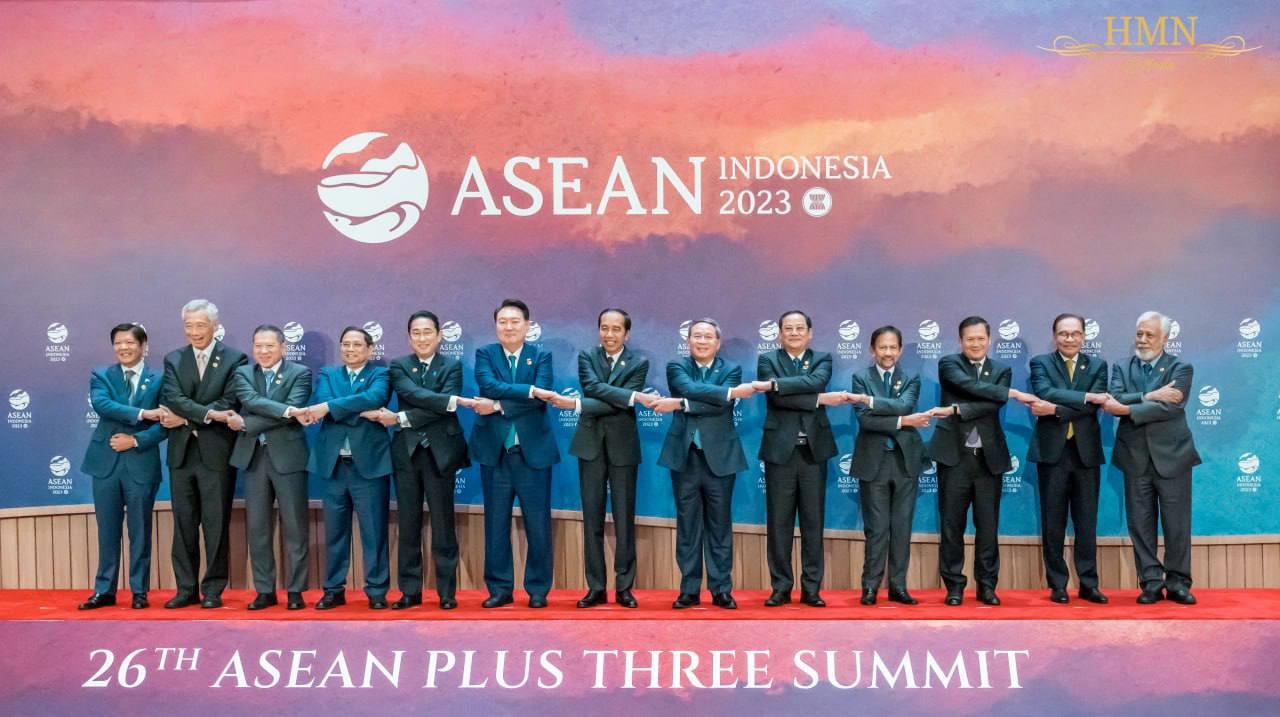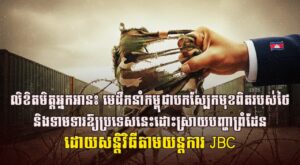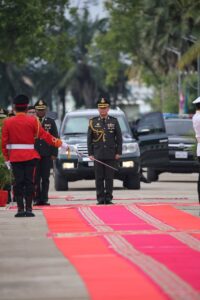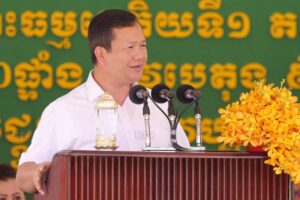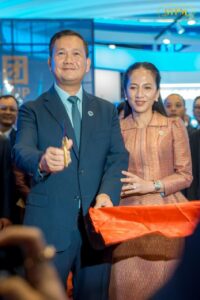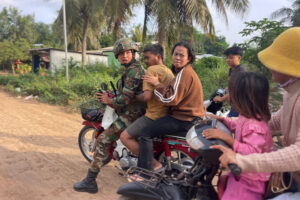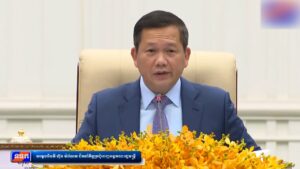Samdech Hun Manet, ASEAN’s youngest leader–History repeats itself
(KT)- Prime Minister Hun Manet is attending 43rd ASEAN Summit and related Summits in Indonesia. At 45, he drew a lot of attention as the youngest of all the 10 ASEAN leaders.
History repeats itself. Former Prime Minister Samdech Hun Sen also attended his first ASEAN Summit in 1999 in Manila, the Philippines, as the youngest ASEAN leader when he was 47 years old.
Under Samdech Hun Sen’s leadership, Cambodia became a member of ASEAN on April 30, 1999 in Hanoi, Vietnam. It has been 24 years since Cambodia became a member of this regional grouping, recently seen as a diplomatic and economic powerhouse thanks to its influential convening power amid superpower rivalry and a global economic slowdown.
Despite being the youngest, it doesn’t appear that Samdech Hun Manet was uncomfortable fulfilling his roles in his first summitry season or that his partners took him lightly for his age. On the contrary, judging by his composure and the results of each meeting, we can say that his performance was smooth and quite impressive.
He sat at the table with confidence during breakfast meetings with Vietnamese and Lao leaders. Photos from all bilateral meetings showed smiling photos of each participant, reflecting a cordial and friendly atmosphere. Meetings were like those between old friends. In his meetings with leaders older than him, such as Brunei leader His Majesty Sultan Haji Hassanal Bolkiah, Singaporean Prime Minister Lee Hsien Loong, and Malaysian Prime Minister Anwar Ibrahim, he appeared humble and courteous, but firm and dignified. It is an inherent Khmer virtue to show respect to people older than us. Yet he maintained equality among the leaders of nations and within the ASEAN family.
He demonstrated a straight-to-business demeanor and a results-oriented working style. He reached an agreement with Indonesia to export 250,000 tonnes of rice per year to Indonesia in the very first meeting he had with President Joko Widodo. Likewise, a memorandum of understanding on Cambodia-Philippines partnership in agriculture and MSME development was signed during his first-ever meeting with President Ferdinand Marcos Jr.
At key meetings such as the Summit Plenary and Retreat, Samdech Hun Manet touched on key developments in the region, stressing on Indonesia’s theme: “ASEAN Matters: Epicentrum of Growth”. After all, he is no stranger to diplomacy. He practiced the field, not under the shadow of his father but of his own right, through the military domain. He visited several friendly countries, like China, India, Japan, Singapore, Thailand, and Vietnam, etc., and was received by the honor guards and leaders of friendly nations well before he was elected as prime minister. He is well versed in international affairs, military and economic affairs provided his educational and working background.

After all these meetings, it suffices for foreign observers to ascertain that Samdech Hun Manet has proved to be an effective interlocutor, more mature than his age.
But still there is another legendary larger-than-life figure at the ASEAN meetings, which is the former prime minister Samdech Hun Sen. At the meetings, everyone talked about his name and how he left a big mark in terms of ASEAN’s institutional development. maintaining regional peace and stability as well as promoting regional integration.
There is a Khmer saying that goes “touk tov, kampong nov”, which means that the boat moves away but the kampong (dock) always remains. The legacy of former Prime Minister Hun Sen will be remembered in ASEAN.
Despite criticism against him based on the Western view of perfect democracy, Samdech Hun Sen is actually highly respected among many developing countries in terms of peacebuilding, nation building, development and diplomacy. It is rare that a small country like Cambodia is able to punch above its weight, dealing with contemporary regional and global issues like Myanmar, the South China Sea, and Ukraine etc.
This is not due to the great capacity of the former Prime Minister alone, but also to the complex and intricate institutional frameworks that ASEAN can provide for him to exert influence on issues of common interest and concern. Of course, countries would not follow him if he exploited this framework, but Samdech Hun Sen was trying to use multilateral frameworks not for his personal gain but for the sake of peace and stability. He has been intransigent on issues of peace and he always advocates dialogue, even if there is only the slightest opportunity for dialogue between the parties in conflict.
Former Prime Minister Hun Sen recalled, “I remember how rounds of negotiations failed and every stakeholder came away empty-handed. It was none other than the strong will and determination to win peace for all Cambodians that brought us back to the negotiating table.”
When the Cambodian leader shared this experience with Myanmar, he was told that they could not negotiate because both sides called each other terrorists. But the Cambodian leader recounted his experience when he had to negotiate even with the Khmer Rouge, known to be bloody killers.
Going forward, Samdech Hun Manet must continue the legacy that Samdech Hun Sen left in ASEAN diplomacy. This is a long tradition of Cambodian diplomacy that values peace and stability above all, based on the unique history that has shaped the characteristics of Cambodian political and diplomatic culture.
Sim Vireak
Strategic Advisor of the Asian Vision Institute (AVI)

